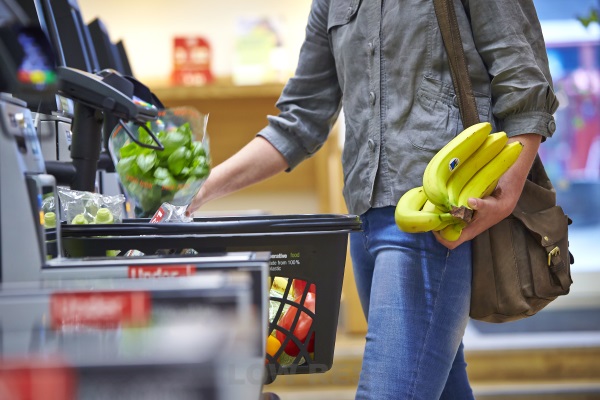More and more of us are expressing our values through our everyday shopping. We increasingly demand more information about what goes into our food and other purchases, where they come from and how they are made.
Brands are responding with a bewildering range of labels and claims from organic to vegan, from ‘sustainably sourced’ to ‘cruelty free’, on everything from ice cream to hand cream.
World Fair Trade Day is a good time to look at which ethical and sustainability considerations are most important for consumers. What do shoppers want to know? Are they influenced by companies’ sustainability claims, or do they need to see that brands are actually ‘walking the talk’? And as consumers ourselves, do our choices really make a difference?
Environmental impact and fair wages are top of mind for shoppers
According to new research across 5,000 consumers in France, Germany, Italy, Spain and the UK, the vast majority of us takes sustainability into account when shopping for everyday products such as food, drinks, and cosmetics.
The survey was commissioned by a consortium of fair trade and ethical fashion organisations, including Fairtrade International, as part of the European Union-funded project Trade Fair, Live Fair.
Nearly four in ten consumers said their top priority is that food and drink is produced in a way that doesn’t harm the environment, while just under a third prioritised paying workers a fair, living wage and ensuring that animals are not harmed during production.
Overall, when asked to choose from seven possible sustainability attributes that also included local or organic production, recyclable packaging and safe working conditions, only nine percent of those surveyed said none of the issues were important to them.
The survey reveals interesting differences between countries. Germans rated animal friendly production and being locally grown as the top two priorities (45 and 38 percent respectively), while UK consumers rated environmentally friendly production and recyclable packaging the highest (37 percent each), while locally grown was less important (17 percent).
Consumers demand more transparency and want companies to tackle global issues
Despite these different priorities, it’s clear that overall, consumers want to know what brands are doing to make a difference, both within their own supply chains and globally.
Three-quarters of all respondents wanted food companies to say where the ingredients in their products come from, and a similar number wanted to know how their food is produced. Sixty-one percent look for information about how food companies protect workers’ human rights.
The European findings are echoed in a global study by Accenture of 35,000 people in 35 countries which reveals that two-thirds of consumers make decisions about what to buy based on a company’s transparency. Sixty-two percent want companies to have ethical values and demonstrate authenticity.
Respondents to the Trade Fair, Live Fair survey placed even stronger emphasis on brands taking action on key global challenges, including protecting the environment (88 percent citing it as important), tackling climate change (85 percent), global poverty (84 percent) and gender inequality (77 percent).
Trust is key to drive a cycle of increasing sustainability
The research highlights consumers’ desire for transparency, which leads to trust. Companies need to back up their sustainability claims, for example by being independently certified. A recent GlobeScan survey of more than 9,000 consumers in eight countries, including the biggest markets in the world, showed that 85 percent of those who recognise the Fairtrade label trust it, and 69 percent said the label makes it easy for them to decide whether a product is responsibly produced.
The good news is that when people vote with their wallets, companies get the message and respond. Last year, the Dutch supermarket Coop switched entirely to Fairtrade bananas. The German retailer Lidl did the same across several European countries. Nespresso has also expanded its Fairtrade sourcing, and UK supermarket chain Waitrose has committed to using all Fairtrade cocoa in its own-brand confectionery products by the end of 2019. Brands can and will do more when the demand is there.
Governments also have a big part to play, more than 70 percent of the shoppers surveyed in the Trade Fair, Live Fair research said law makers must do more to support sustainable consumption.
Consumers are making informed choices about everyday shopping. Governments, backed by public pressure, are playing a stronger policy role. Businesses are cleaning up their supply chains and offering more sustainable options. Through this virtuous cycle we, consumers, companies, civil society and governments, can all help drive progress towards fairer trade and a more sustainable future for all of us, especially for farmers and workers. A decent living. Safe working conditions where human rights are respected for all. Environmental protection. Climate resilience.
On World Fair Trade Day, let’s commit to getting there, together.
…
Kelly Hawrylyshyn, author of this blog, is the Senior Advisor, Global Resource Mobilization at Fairtrade International.
The Trade Fair, Live Fair project, funded by the European Union, joins the collective forces of 21 organisations and certification schemes working on fair trade and ethical fashion, including Fairtrade International, to make progress on sustainable production and consumption (SDG12). The opinions expressed here are the sole responsibility of Fairtrade International and do not necessarily reflect the views of the European Union.
